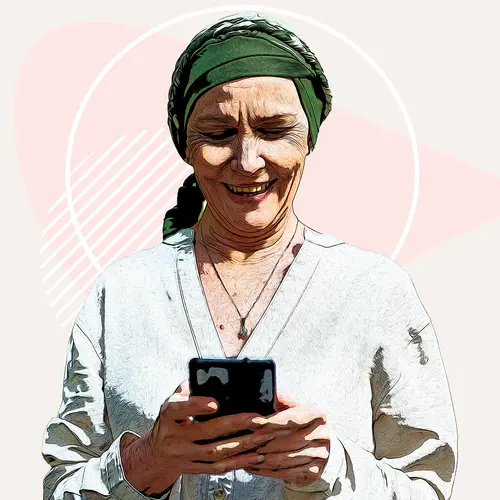Women around the world are more likely to get breast cancer than any other type, other than skin cancer. In the U.S., 1 in 8 women will be diagnosed with breast cancer at some point in their lives.
Cancers are complex diseases that come from many different causes. But certain lifestyle factors may raise your chances for breast cancer. Having one or more of these traits doesn’t mean you’ll get the disease. And you can get breast cancer even if you have no risk factors at all.
Weight. More than 70% of American adults are overweight. Breast cancer risk goes up with extra pounds, especially if you gain them after menopause. And being overweight or obese makes your cancer more likely to come back. But not all fats are equal. The kind around your belly is more dangerous than that on your hips or thighs. It creates the hormone insulin, too much of which may fuel the growth of cancer cells.
Dropping just 5%-10% of your body weight can make a difference. If you need to lose weight, aim for a half-pound per week until you hit your goal.
Alcohol. Drinking too much raises your levels of estrogen and other hormones linked to breast cancer. It may also damage your DNA cells. If you have three or more alcoholic drinks per week, your risk goes up 15%. It goes up another 10% for each drink beyond the three daily drinks. Nonalcoholic drinks are a risk-free substitute.
Smoking. Your chances of having breast cancer are higher if you started smoking before age 17. After you quit, your risk will remain high for about 20 years. If you need help to quit, you may:
- Ask your doctor about medication or a patch.
- Join a stop-smoking support group.
- Try acupuncture and meditation.
Hormones. After many women stopped hormone replacement therapy (HRT) in the early 2000s on the advice of experts, breast cancer rates dropped among postmenopausal women -- those who finished menopause.
Progesterone and estrogen HRT taken during menopause for more than 5 years increase risk. Birth control pills may do the same. They release small amounts of hormones. When you stop taking them, your risk goes down.
Radiation. This energy from electromagnetic waves is all around us, such as in the ground and from medical X-rays. Research shows there may be a connection between breast cancer and radiation. But it’s not clear there’s a link between cancer and a different, low-energy form of radiation called radiofrequency radiation that comes from mobile phones or Bluetooth or Wi-Fi devices.
Delayed childbearing. One in 6 women who give birth in the U.S. are over age 35. Your risk for breast cancer is higher if your first pregnancy is after age 30. That’s because you’re exposed to more estrogen throughout your lifetime. Estrogen causes most breast cancers to grow.
Pregnancy also helps protect you from unhealthy cell growth that can lead to cancer.
Inactivity. A lot of modern life involves sitting. Being sedentary raises your chance for both obesity and breast cancer. Look for ways to stay active. Stand up and walk whenever you can. Find an activity that gets you off the sofa.
The American Cancer Society suggests at least 150 minutes of medium intense activity each week, such as yoga and biking.
Low vitamin D. Low levels may put you at a higher risk for breast cancer. You get vitamin D from a few foods or supplements. Your body creates it when your skin absorbs sunlight. It may even stop cancer growth.
People in the Northeastern United States die more often from breast cancer than those in warmer regions. But too much direct sun can raise your risk for skin cancer. Fifteen minutes of sunshine three times a week is usually enough.
Poor diet. An unhealthy diet is heavy on highly processed foods -- like chips, cookies, and candy -- and low on whole foods, like whole grains and fresh fruits and vegetables. That may raise your cancer risks. So might eating lots of red and processed meats. Foods cooked at high temperatures absorb cancer-causing chemicals. Eat no more than three servings of red meat per week. This is a total of 12-18 ounces. A study that looked at young women who ate a lot of red meat in their teenage and early adulthood years found they had a 22% higher chance of breast cancer later in life.
